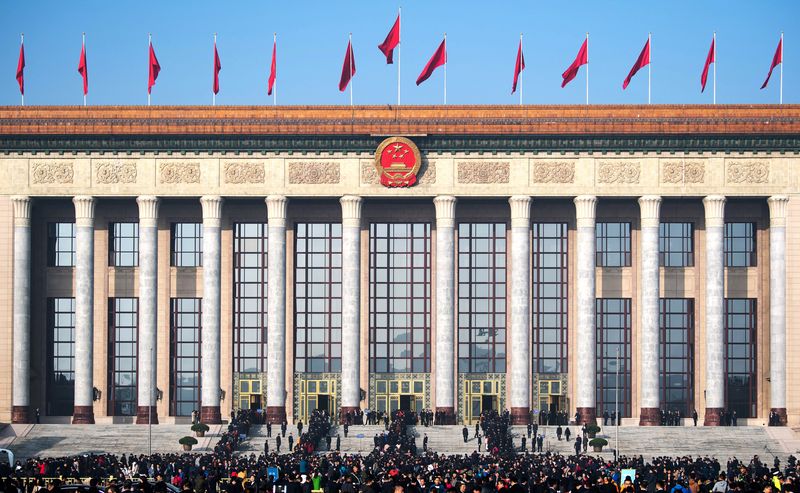Postponement of two sessions proposed
Two sessions, the country's biggest annual political event, may be postponed this year, as more focused efforts are needed at the moment to fight the novel coronavirus outbreak.
Two sessions, the country's biggest annual political event, may be postponed this year, as more focused efforts are needed at the moment to fight the novel coronavirus outbreak.

The term two sessions refers to the annual plenary sessions of the National People's Congress, the nation's top legislature, and the National Committee of the Chinese People's Political Consultative Conference, the top political advisory body.
Customarily, the CPPCC National Committee starts its annual gathering on March 3, and the NPC on March 5. About 3,000 national legislators and around 2,200 national political advisers travel to Beijing for the two sessions to review work reports of the central government, top judicial authorities, the annual budget, and to bring voices from the grassroots and different social sectors to the central leadership.
However, since the recent outbreak of novel coronavirus pneumonia, the Communist Party of China Central Committee with Xi Jinping at the core has made clear its instructions that epidemic prevention and control work should be the most important task for the moment, and there has been positive progress.
As it is now a crucial time in curbing the spread of the virus, and many national legislators are fighting the epidemic at the front line, NPC leaders, after careful deliberation, consider it necessary to delay this year's plenary meeting, Zang Tiewei, a spokesman for the Legislative Affairs Commission of the NPC Standing Committee, said on Monday.
At a chairpersons' meeting of the NPC Standing Committee on Monday in Beijing, they suggested the upcoming session of the NPC Standing Committee, scheduled to begin on Monday, consider a draft proposal to postpone the third plenary session of the 13th NPC, according to a Xinhua News Agency report.
A draft decision on cracking down on the illegal wildlife trade and eliminating the bad habit of eating wild animals to guarantee people's lives, health and safety will also be discussed by NPC Standing Committee members late this month.
On Monday, chairpersons of the top political advisory body also met to discuss matters related to postponing the third session of the 13th CPPCC National Committee, Xinhua reported.
Saying the prevention and control work is still at a critical stage that allows no laxity in efforts, the meeting stressed the participation of political advisory bodies and advisers at all levels to win the battle.
China's Constitution and related laws stipulate that the NPC convenes a plenary meeting every year and the NPC Standing Committee is responsible for deciding details of the plenary session.
At its previous bimonthly session, the NPC Standing Committee had decided on Dec 28 that the third plenary session of the 13th NPC would start on March 5, 2020. So if the session is to be delayed, the change needs to be approved at the next gathering of the NPC Standing Committee, Zang said.
Records show that the beginning of the NPC plenary session has not always been on March 5. The first plenary meeting of the first NPC was held in September 1954, and its second plenary session opened in July of the next year.
It was not until 1998, when the Ninth NPC held its first plenary session, that the opening date was customarily changed to March 5.
Fu Yuhang, an NPC deputy from Sichuan province, said on Monday that she supported the plan to postpone this year's two sessions, considering it a move based on truth and reality.
"The proposal to delay the meetings not only upholds the principle that people's health and safety goes first, but also meets the practical demand of disease control work," she said.
Apart from more than 5,000 national legislators and political advisers, the annual two sessions also attract about 3,000 reporters from home and abroad, as well as other working staff members.

